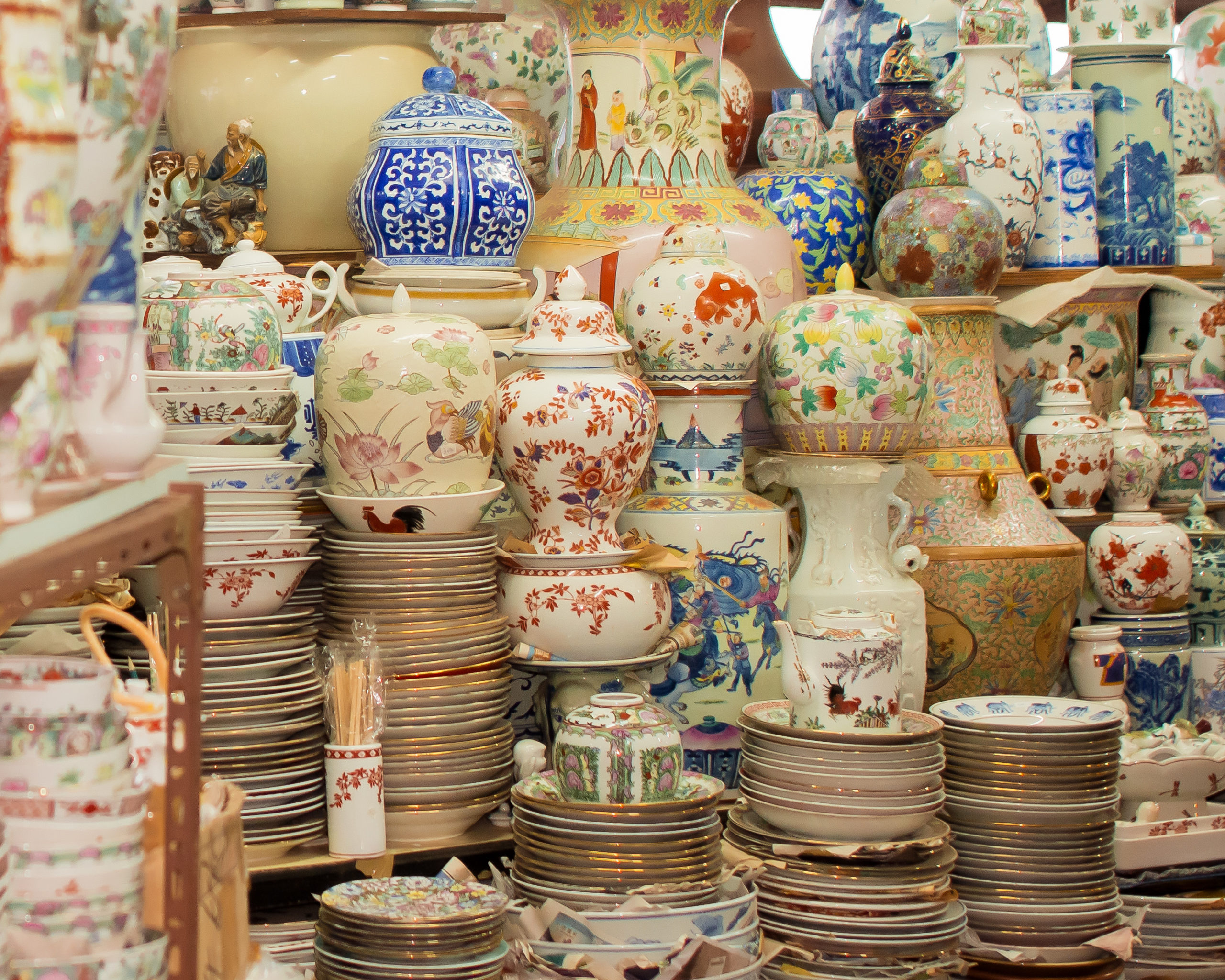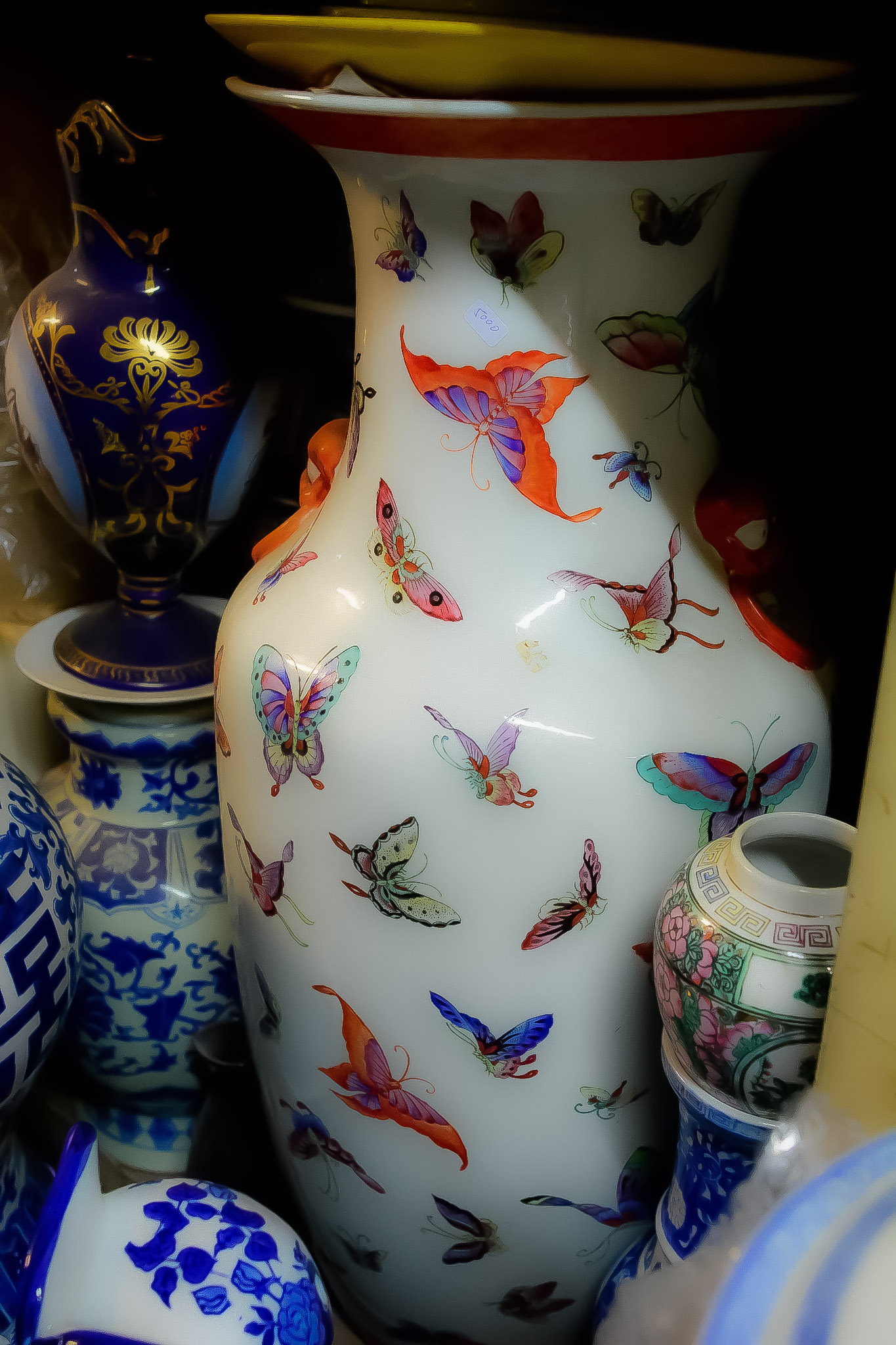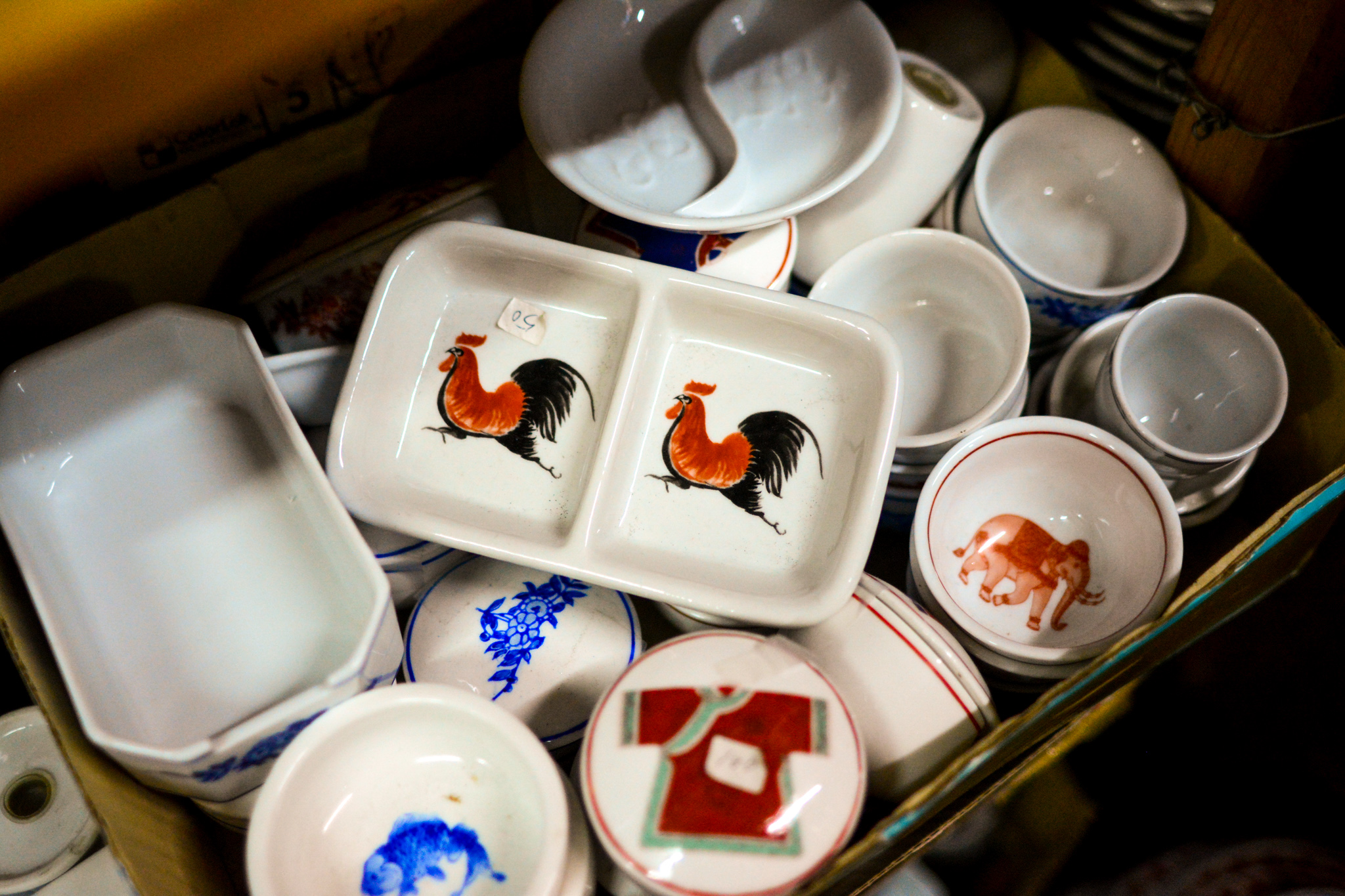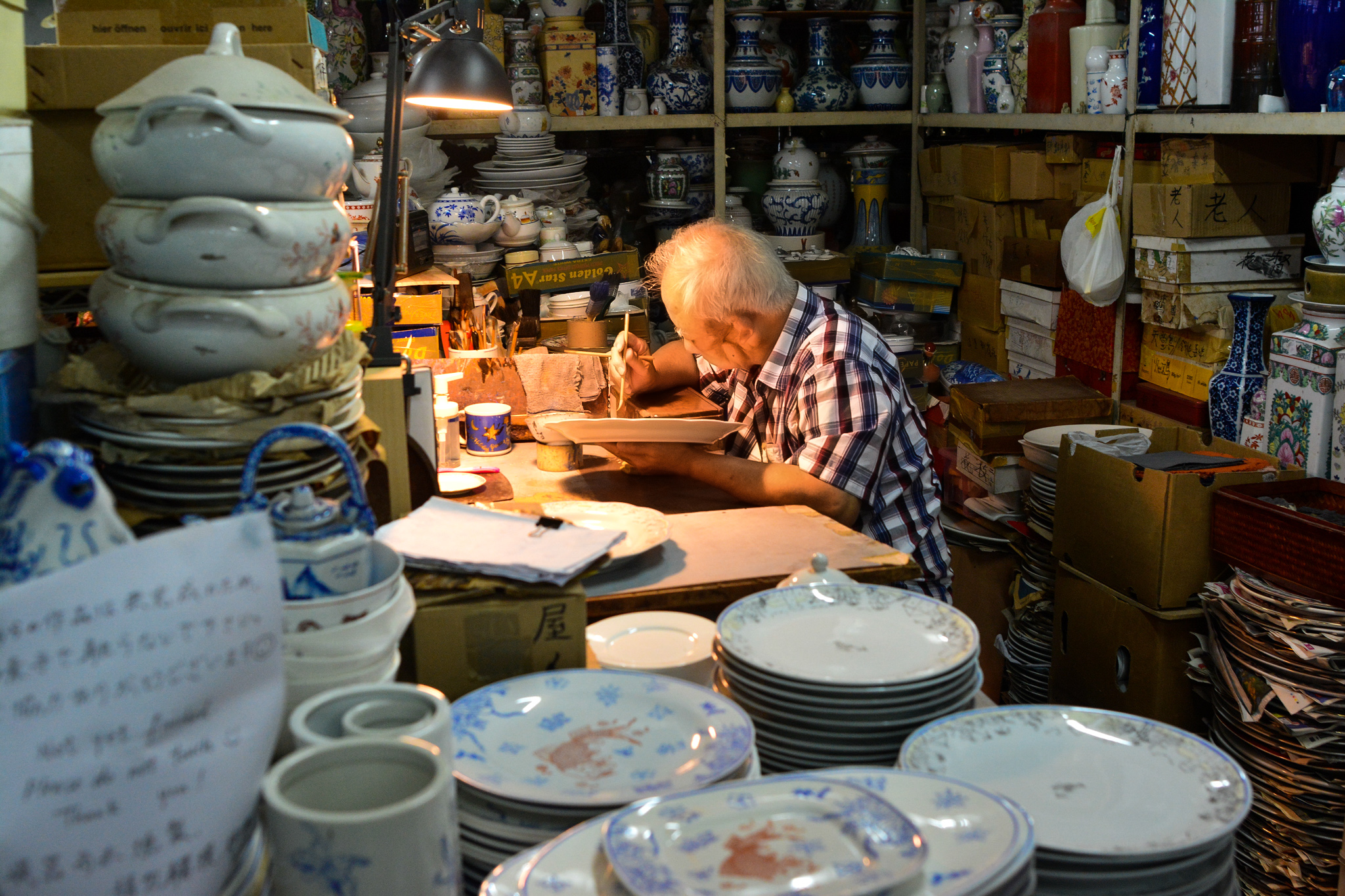If Chinese ceramics simulate your interest, a visit to Yuet Tung China Works (粵東磁廠), located on the 3rd floor of the Kowloon Bay Industrial Centre, is indispensable.

The History
Dating back to the Kangxi (康熙) period (1661–1722) of the Qing Dynasty, merchants originally transported white porcelain from Jingdezhen (景德鎮), then painted vivid patterns on them in Guangzhou before firing. Due to protectionist policy, the Canton System (1757–1842) was implemented to allow foreign trade only via Guangzhou, Foreign merchants (Dutch, British) directly commissioned the shape, style, and patterns of colored porcelain in Guangzhou, thereby promoting the emergence and development of hand-painted colored porcelain. “Canton Porcelain” not only retains the characteristics of traditional Chinese porcelain, but also absorbs the essence of Western craftsmanship. Eventually “Canton Porcelain” became one of China’s main export and has a history of several hundred years.

The beginning of Yuet Tung
Established in 1928, Yuet Tung is renowned for crafting Guangzhou's esteemed Canton Porcelain wares and producing special order pieces for foreign royal families and top-tier hotels. Today, its coveted porcelain pieces remain a source of pride for Hong Kong. Yuet Tung boasts the honor of being the first ceramic painting studio established in Hong Kong, and remarkably, it's the only one that has survived to this day. After three generations, this family business is currently in the hands of Joseph Tso.
For more than 90 years, the porcelain wares at Yuet Tung have been intricately hand-painted. These pieces flaunt a wide array of patterns and designs popular across the greater China area. Among these, their renowned rooster motif stands out, symbolizing family prosperity.

Yuet Tung is a treasure trove brimming with stunning porcelain wares. Towering stacks of plates, saucers, bowls, and ginger jars fill the place. As you navigate through this maze of ceramics, you'll find hidden gems and observe dedicated artisans, usually an older man or woman, meticulously hand-painting each ceramic piece.

However, as automation advances, the number of craftsmen has drastically decreased. Once employing 300 individuals at its peak, only four craftsmen remain at the shop today. While prices vary significantly and can be as inexpensive as a few Hong Kong dollars or quite steep, they are generally reasonable. The charm and history of Yuet Tung make it well worth a visit.









